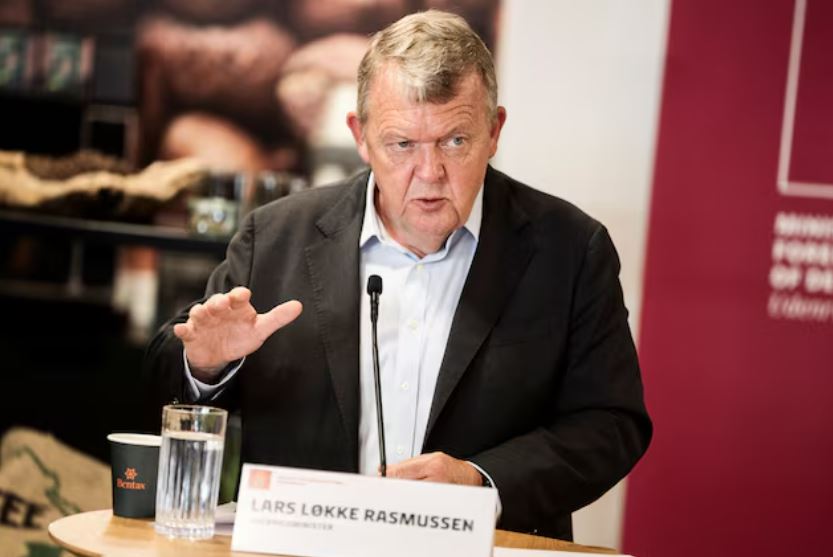Denmark’s Diplomatic Realignment in Africa
Denmark’s foreign ministry, under the leadership of Foreign Minister Lars Løkke Rasmussen, has officially announced the closure of its embassies in Mali and Burkina Faso. This decision comes in the wake of escalating political unrest and a series of military coups that have destabilized the region over the past few years. The closures reflect Denmark’s strategic pivot away from increasingly volatile regions in favor of strengthening ties with more stable African nations.
Background: The Sahel Region’s Unrest
Mali and Burkina Faso have been under military rule since 2020, with their governments facing severe challenges, including ongoing insurgencies and deteriorating relations with Western powers. Mali, in particular, has seen its security situation worsen despite—or perhaps because of—its decision to cut ties with European military forces in favor of cooperation with Russia’s Wagner Group, a controversial paramilitary organization.
This shift has strained relations with Denmark and other European nations, as the Sahel region’s governments increasingly turn to Russia for military and political support. The Danish foreign ministry cited these deteriorating relationships and the limited diplomatic room for maneuver as key reasons for closing its embassies in Mali and Burkina Faso.
Strategic Reorientation: New Diplomatic Frontiers
Simultaneously, Denmark is enhancing its diplomatic presence in other parts of Africa, with plans to open embassies in Rwanda, Senegal, and Tunisia. The decision to expand its diplomatic footprint in these countries highlights Denmark’s intent to engage with African nations that are viewed as more politically stable and economically promising.
Furthermore, Denmark is bolstering its diplomatic workforce in key African nations such as Egypt, Kenya, South Africa, Nigeria, and Ghana. This strategic reorientation underscores Denmark’s commitment to maintaining a strong influence in Africa, particularly as the continent becomes a battleground for geopolitical influence between Western powers and Russia.
Geopolitical Implications: East vs. West
The Danish foreign ministry’s statement underscores a broader geopolitical concern: the orientation of African nations either towards Western democracies or towards Eastern autocracies, particularly Russia. As the influence of Russia grows in the Sahel, Denmark’s withdrawal from Mali and Burkina Faso can be seen as a response to the increasing complexity of engaging with governments that are perceived as aligning more closely with Russian interests.
This strategic shift by Denmark raises important questions about the future of European influence in Africa. With nations like Mali and Burkina Faso turning away from traditional Western alliances, Denmark’s decision to invest its diplomatic resources elsewhere could be a harbinger of a broader European retreat from certain parts of Africa.
Broader Context: Denmark’s Global Diplomatic Strategy
Denmark’s actions in Africa are part of a larger pattern in its global diplomatic strategy, which increasingly focuses on aligning its foreign policy with countries that share similar values and political systems. By withdrawing from unstable regions and reinforcing its presence in more stable countries, Denmark aims to maximize its influence in areas where it can have the most impact.
The decision to open new embassies in Rwanda, Senegal, and Tunisia—countries with relatively stable governments and growing economies—reflects Denmark’s interest in engaging with nations that are likely to play significant roles in Africa’s future. This approach is not only pragmatic but also forward-looking, as it positions Denmark to build strong, long-term partnerships in a continent that is expected to see significant economic and demographic growth in the coming decades.
Conclusion: A Strategic Withdrawal with Long-Term Goals
Denmark’s decision to close its embassies in Mali and Burkina Faso, while expanding its diplomatic efforts in other parts of Africa, represents a calculated response to the changing political dynamics of the continent. By shifting its focus towards more stable and economically promising countries, Denmark is positioning itself to remain a key player in African diplomacy, even as it retreats from regions where its influence has waned.
This strategic reorientation is emblematic of a broader trend among Western nations, which are increasingly reevaluating their diplomatic engagements in regions marked by instability and rising foreign influence. As Africa continues to be a focal point of global geopolitical competition, Denmark’s actions may serve as a model for other countries looking to navigate the complex and rapidly changing landscape of African diplomacy.
Soumya Smruti Sahoo is a seasoned journalist with extensive experience in both international and Indian news writing. With a sharp analytical mind and a dedication to uncovering the truth, Soumya has built a reputation for delivering in-depth, well-researched articles that provide readers with a clear understanding of complex global and domestic issues. Her work reflects a deep commitment to journalistic integrity, making her a trusted source for accurate and insightful news coverage.



